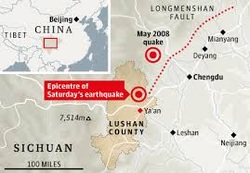 www.guardian.co.uk
www.guardian.co.uk The US Geological Survey reported that the first earthquake near Dingxi city had a magnitude of 5.98 and was shallow, with a depth of just 9.8 km (6 miles). The closer to the surface an earthquake strikes, the more damage it can cause. Just over an hour later, a magnitude 5.6 quake hit the same area.
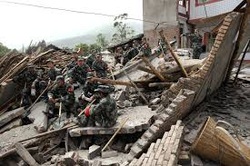 news.nationalgrographic
news.nationalgrographic The earthquake reportedly triggered a series of mudslides and landslides, state-run news agency Xinhua reported. The Gansu military police has deployed 500 soldiers, including 120 specialist rescuers.
500 emergency tents and 2,000 quilts are also being transported to affected areas.
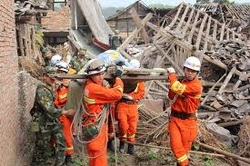 www.breakingnews.com
www.breakingnews.com v April 2013 - 6.6 magnitude quake in Sichuan province kills at least 160
v September 2012 - 5.6 magnitude quake in south western Yunnan and Guizhou provinces kills at least 80
v March 2011 - magnitude 5.4 earthquake in Yunnan kills at least 22
v April 2010 - magnitude 6.9 quake hits Qinghai province, killing over 1,100
v May 2008 - magnitude 7.9 earthquake in Sichuan kills up to 90,000
The country of China occupies such a large land mass. It's bound to experience more natural events than other areas. However, they've had a bad run of momentous events. The Red Cross and other organizations are collecting donations to send aid to those affected.
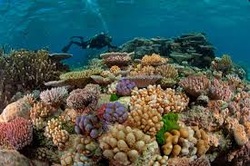
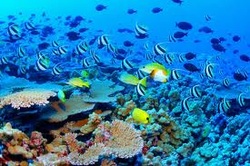

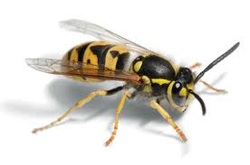
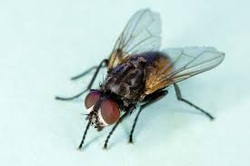




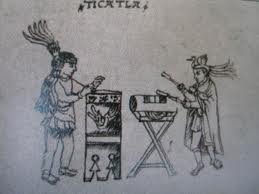


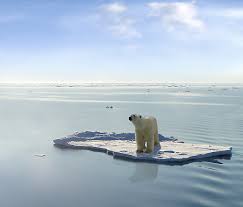



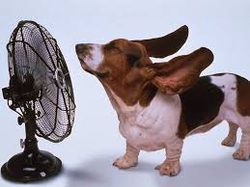

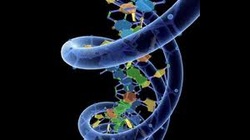
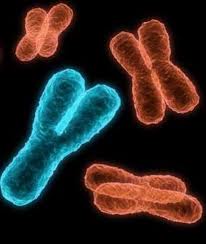


 RSS Feed
RSS Feed






